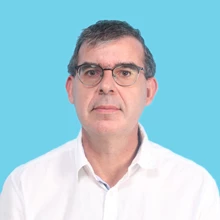
This question was on my mind when, in the Meme region of Cameroon, I saw motorcycle passengers come to a full stop, dismount, carry the bags of vegetables they were transporting on their backs, and start pushing the vehicle to the side, over a field--to circumvent the huge pool of water interrupting the rural road in front of us. Soon, they were on their way again.
Meme is a remote region with almost four meters of rain per year. The state of its roads reflects the very limited investment they have seen in the last decade.
The motorcycle story from Meme shows that, even in extreme climatic conditions, the connectivity of roads is maintained. A road may be impassable for cars, but motorcycles find their way around. Therefore, most rural populations are somehow connected to markets, whereas connectivity is usually thought of as either 0 or 1.
This means that investments in roads could have a lower-than-expected impact on economic development since most households are already somehow connected.
We demonstrate in a paper that investing uniformly in tarred roads in Africa is likely to have a much lower impact on poverty than expected. In some cases, construction or rehabilitation of rural roads (suitable for trucks) created major difficulties. They are expensive to build relative to the economic development they make possible; they are expensive to maintain; and normally they are underused.
In a study covering 50 villages in Burkina Faso, out of 47 rural access roads, 19 had no car or truck traffic at all (despite traffic of up to 250 bicycles, 100 pedestrians, and 100 motorcycles a day).
Given current agricultural production and plot size of many African countries, when it comes to rural roads, as long as a motorcycle or a bicycle can go through, access to market exists.
Considering that an increase in non-farming activities is the main driver of poverty reduction in rural Africa, road investments should be made in places where non-farming activities could be developed. In most cases, the last mile should not even be a road.


Join the Conversation